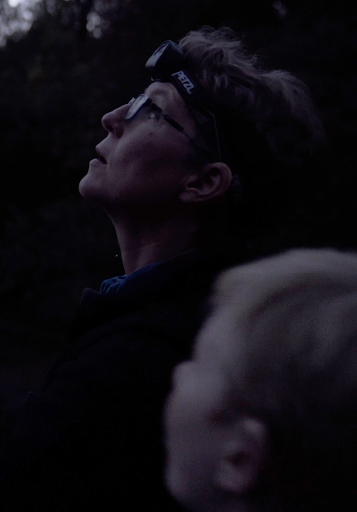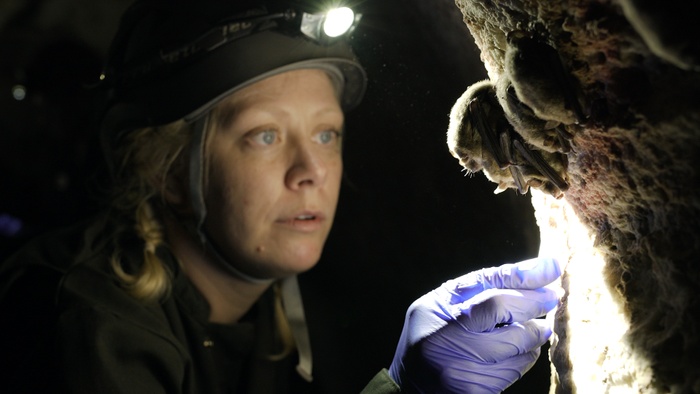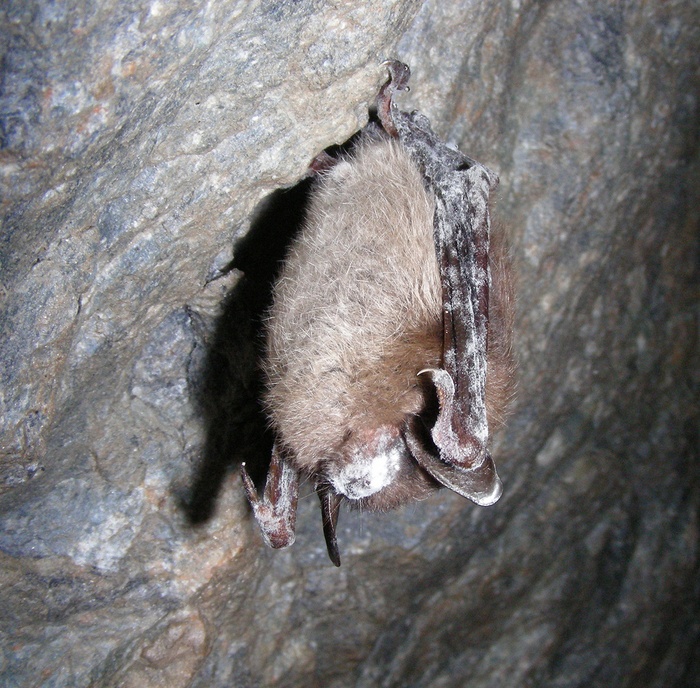All around us, roosting in trees or crevices, or silently migrating through our neighborhoods, bats go unseen. Kristin Tieche's documentary explores the crucial roles that bats play in our shared environment, and how a team of real-life Bat Women are fighting for a better future for both bats and humans. The stakes are incredibly high, as bats in North America are being devastated by an introduced disease, while the connections between global bat populations and COVID-19 sow unwarranted fear of this misunderstood animal.
The Invisible Mammal is a feature length documentary co-produced by the Wild Lens Collective, a non-profit media company focused on the intersection of environmental conservation and creative storytelling. All contributions to this campaign go directly towards funding the next stage of work on this important project.
The Story Behind the Film:
Production began on "The Invisible Mammal" in 2019. Director Kristin Tieche had been exploring the posibility of launching a feature documentary project about bats since the release of her short film, "The Bat Rescuer" in 2016, and when she connected with Dr. Winnifred Frick, a
All of our production plans were cast aside in the wake of the COVID-19 pandemic in 2020, but this created a unique opportunity for our production team. Kristin had already established a bond of trust with the film's main character, Dr. Frick, as Frick was thrust into the public spotlight at the pandemic's outset. As blame was placed on bats by many in the mainstream media, Dr. Frick spoke out against these characterizations, arguing that providing protection for bat populations may be the single most important preventative measure against zoonotic disease.
As pandemic restrictions eased, Dr. Frick and her team got back to work on their critically important research on white-nose syndrome, the disease that has been devastating North American bat populations since 2006. Our team followed this research through to it's natural conclusion, when preliminary results became available towards the end of 2022. In 2023 we began reviewing footage, developed our sizzle reel and pitch deck, and continued to seek out funding and distribution opportunities.

When we launched this campaign in the beginning of the summer in 2024, we set a goal to raise the funds needed to complete work on the film's rough cut. We knew that reaching the rough cut stage would open up a number of opportunities, and when we received a $25,000 contribution from Bat Conservation International, we launched a campaign to match that amount through this grassroots effort.
By the beginning of October we had reached our initial fundraising goal of $25,000, which allowed us to complete our rough cut and begin submitting The Invisible Mammal to film festivals. We plan to have our festival premiere in March or April of 2025.
The next steps include music composition, animation, color correction, and our sound mix. We are extremely excited to be working with the Grammy-award winning composer Carla Patullo on an original score for The Invisible Mammal, but we still need to secure more funding to begin the music composition process. Check out our new campaign here to raise the funds needed to complete the film.

